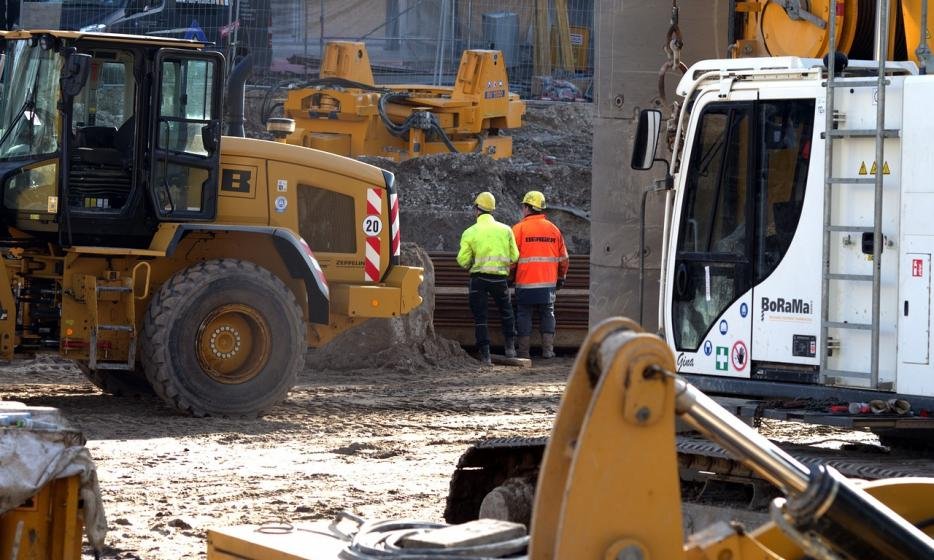Construction: The Foundation of Modern Life

Construction is more than just the act of putting up buildings. It represents the human drive to shape the world around us, combining creativity, engineering, and labor to create the spaces we live, work, and interact in.
From massive skyscrapers to complex infrastructure systems, construction is responsible for the physical environment that supports society. In this article, we’ll explore what construction really involves, its different categories, and why it remains one of the most essential industries in the modern world.
What Is Construction?
Construction refers to the process of building structures meant to serve practical and social purposes. It begins with planning and design and moves through material sourcing, engineering, and physical labor until a complete structure is ready for use.
This process applies to a wide range of projects — from homes and commercial buildings to large-scale public works like bridges, tunnels, and water systems. The goal is always the same: to create spaces that are functional, safe, and suited to the needs of people and communities.
Main Types of Construction
Construction projects vary in purpose and complexity. They are generally grouped into four main types:
Residential Construction
This involves the building of living spaces such as houses, apartments, and condominiums. The focus is on comfort, safety, and meeting the housing needs of individuals and families.
Commercial Construction
Commercial projects include buildings used for business and public interaction, such as offices, shopping centers, restaurants, schools, and hotels. These buildings must accommodate both function and aesthetics.
Industrial Construction
These projects focus on structures used for manufacturing or production, like factories, power plants, and warehouses. They are designed to support large-scale operations, heavy equipment, and specialized industrial processes.
Infrastructure Construction
Also known as civil construction, this type deals with essential public systems like roads, bridges, airports, railways, and water supply networks. Infrastructure projects are key to economic development and daily convenience.
Example of a Construction Project
Consider the construction of a high-rise building. The project begins with architectural design and structural planning. After obtaining permits, the site is cleared, and the foundation is laid.
The framework of the building rises floor by floor. Mechanical systems such as plumbing, electrical, and HVAC are installed. Walls are built, windows added, and interior finishes completed. The end result is a fully functional building ready for occupancy, representing months or even years of careful coordination and skilled work.
Why Construction Matters
Construction is vital to our daily lives for several key reasons:
Infrastructure Development
It provides the systems that allow cities and economies to operate. Roads, bridges, and transit systems connect people and goods, while public utilities ensure access to clean water and waste management.
Job Creation
The industry employs millions across different roles and skill levels — from architects and engineers to tradespeople and general laborers. It also supports numerous related industries like transportation, equipment, and materials.
Shelter and Services
Construction provides the homes we live in, the schools where we learn, the hospitals where we’re treated, and the offices and stores where we work and shop. Every functional space starts with a construction project.
Economic and Technological Impact
Beyond its physical results, the construction industry contributes to broader economic and technological progress.
Economic Growth
Construction drives investment and creates long-term value. It stimulates growth in other industries, attracts businesses, and increases the value of land and property.
Innovation
New materials, energy-efficient designs, and smart construction methods are constantly emerging. The industry adapts quickly to meet demands for sustainability, durability, and modern functionality.
Urban Transformation
Cities evolve through construction. Abandoned areas are redeveloped, new neighborhoods are built, and modern infrastructure reshapes the way people live and work. Construction is central to urban planning and development.
Conclusion
Construction is far more than building walls and pouring concrete. It is the engine that powers urban development, economic activity, and quality of life. Whether it's a residential home, a commercial complex, or a major infrastructure project, each build represents progress and purpose.
As the world continues to grow and change, construction remains a vital force shaping our future. Its impact is seen not just in what we build, but in how we live.
Thanks for rating the article
Error - the action has been halted
Recommended companies
-

Associated General Contractors of Virginia Inc.
Association / Organization
Glen Allen, VA11950 Nuckols Rd, Glen Allen, VA 23059, United States
-

USA CONTRACTORS Inc
General contractor
Alexandria, VA5649 General Washington Dr, Alexandria, VA 22312, United States
-

Construction Company in Falls Church, Virginia
Contractor
Falls Church, VA1069 W Broad St #276, Falls Church, VA 22046, United States
-

Exis General Contracting
General contractor
Silver Spring, MD1317 Harding Ln, Silver Spring, MD 20905, United States
-

AAA General Contractor LLC
General contractor
Virginia Beach, VA557 S Birdneck Rd, Virginia Beach, VA 23451, United States
-

THE ASSOCIATED GENERAL CONTRACTORS OF AMERICA, INC.
Association / Organization
Arlington, VA2300 Wilson Blvd #300, Arlington, VA 22201, United States
-

Contractors Board
State government office
Charleston, WV1900 Kanawha Blvd E # 749B, Charleston, WV 25305, United States
-

Cw General Contracting
General contractor
Virginia Beach, VA445 Brian Ave, Virginia Beach, VA 23462, United States
